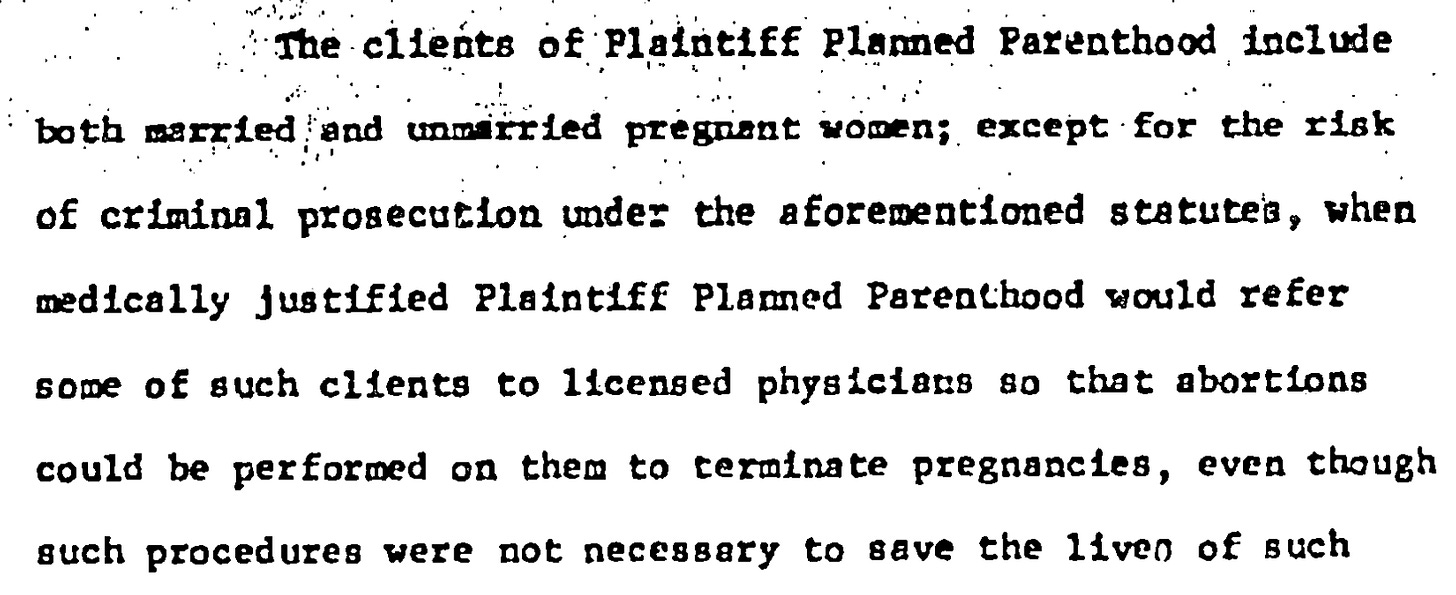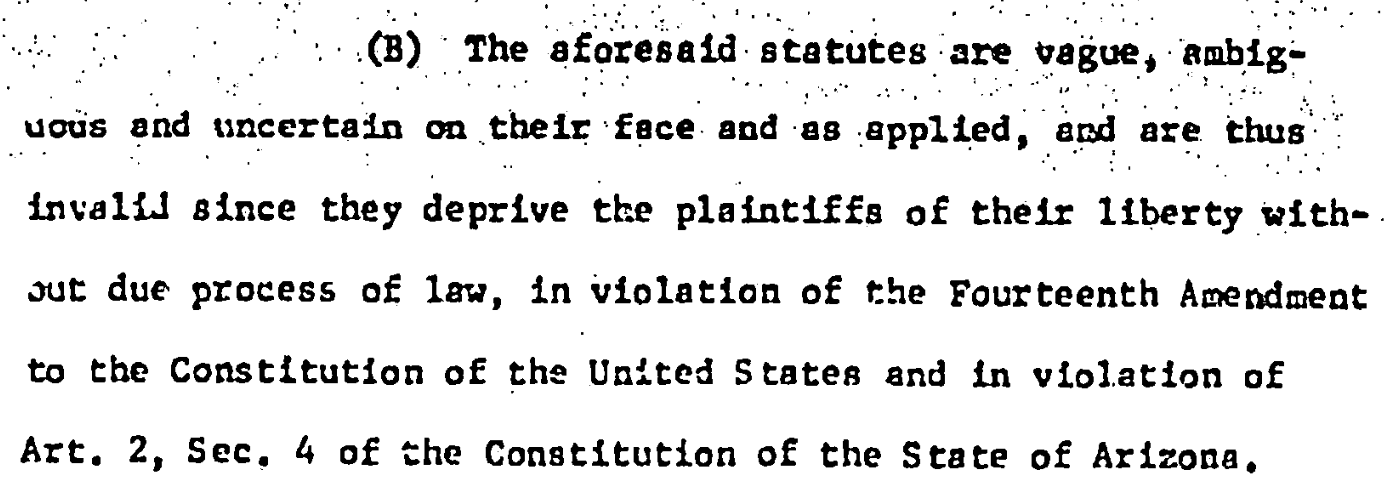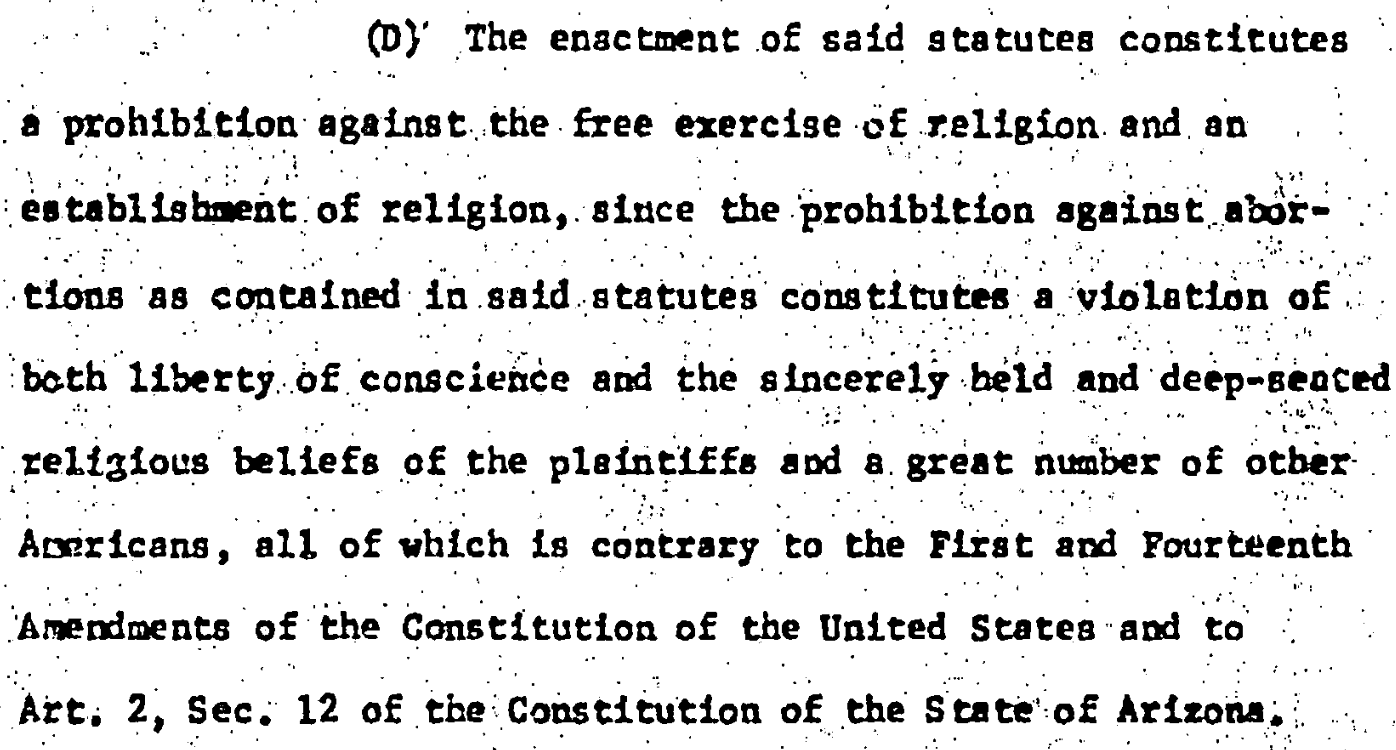Arizona's near-total abortion ban likely blocked until at least June, as next steps planned
Law Dork has the 1971 lawsuit underlying this week's Arizona Supreme Court ruling. Also: Last Week Tonight's Chris McDaniel exposes death penalty drug sales.
Abortion in Arizona will likely remain legal under the terms of the state’s 15-week abortion ban for at least two months, despite this week’s Arizona Supreme Court decision reviving a near-total abortion ban, due to a 2022 court order in another case.
At the same, the original 1971 challenge to the near-total ban is to return to a trial court for further proceedings over remaining claims that were never resolved back in the 1970s — proceedings that could lead to further court action blocking enforcement of the near-total ban beyond that time.
Although the Arizona Supreme Court’s ruling only kept enforcement of the state’s near-total abortion ban blocked for 14 days from the “filing date of this opinion,” the state — in an October 2022 order in a different case brought by the Arizona Medical Association — agreed not to enforce the ban “in any manner against any person“ for 45 days “after issuance of the final mandate” in the case decided at the Arizona Supreme Court this week.
Under Arizona court rules, the mandate will not be issued until at least 15 days after that April 9 decision, meaning the earliest the ban could be enforced would be on June 9.
[Update, 5:00 p.m. April 19: Arizona Attorney General Kris Mayes has confirmed this interpretation — albeit, with a date of June 8, so, we’re counting one date differently — in a letter sent to health care providers, as the Arizona Republic reported on April 19.
Citing that 2022 order, Planned Parenthood of Arizona is continuing to provide abortion services in the state for now. Camelback Family Planning — a clinic highlighted by The Washington Post on Saturday as having performed about 1/3 of the abortions in the state each year — also is continuing to provide abortions.
The additional time also allows the plaintiffs in that case, including Planned Parenthood of Arizona, to decide their next steps.
Under the Arizona Supreme Court’s ruling this week, the plaintiffs were given the two weeks “to determine whether to pursue remaining issues raised in the trial court and, if so, to request further stay relief at the trial court’s discretion.”
The long-term injunction against enforcement of the near-total ban had followed Roe v. Wade and only addressed how that ruling controlled the outcome. As such, and as the Arizona Supreme Court made clear this week, the Planned Parenthood lawsuit had other claims that had never been definitively resolved.
The 1971 lawsuit, provided to Law Dork, includes several state and federal claims that the plaintiffs will, in essence, now need to reconsider in light of current precedent to decide which, if any, claims remain viable. Then, the plaintiffs could seek review of those claims — as well as a stay or injunction blocking enforcement of the near-total ban.
Of course, as the plaintiffs and their lawyers decide what to do now, signatures continue to be gathered for the proposed constitutional amendment to the Arizona Constitution that is expected to be on the ballot in November and would explicitly provide abortion protections.
So, what issues did that original lawsuit raise?
In addition to what became the Roe claims, which are now rejected as a result of Dobbs v. Jackson Women’s Health Organization, plaintiffs also raised similar state constitution-based claims:
Plaintiffs also raised due process claims, under the state and federal constitutions:
Plaintiffs raised vagueness claims, under the state and federal constitutions:
Plaintiffs finally raised religious freedom claims, under the state and federal constitutions:
Law Dork will have more on this story as circumstances develop.
The federal death penalty
At Last Week Tonight this week, John Oliver laid out the findings of Chris McDaniel’s long investigation into who sold execution drugs to the Trump administration to carry out its 13-person federal execution spree.
It’s an important report that highlights both the extremely cavalier way in which those who wish to carry out executions are obtaining the drugs to do so, as well as the importance of those who oppose the death penalty doing all they can to stop executions.
Chris, a friend and former colleague with whom I worked on death penalty stories at BuzzFeed News, does an incredible job of investigating and tracking down the people and businesses trying to sell drugs for use in executions. States want to hide the information, even passing legislation specifically doing so. Most businesses that sell the drugs don’t want their other customers to know their role in state killings.
There is no one better at trying to find their way through all of these roadblocks than Chris. Oliver, Last Week Tonight, and all of us benefit from his work.
Here’s his thread from this week about his work behind the Last Week Tonight report.











Working hard in AZ canvassing for Democratic candidates in LD13. We are going the flip the state legislature BLUE!!
Thank you Chris for all these
clarifications on Arizona court
cases still to be ruled on. Haven't seen any of these
reported elsewhere.